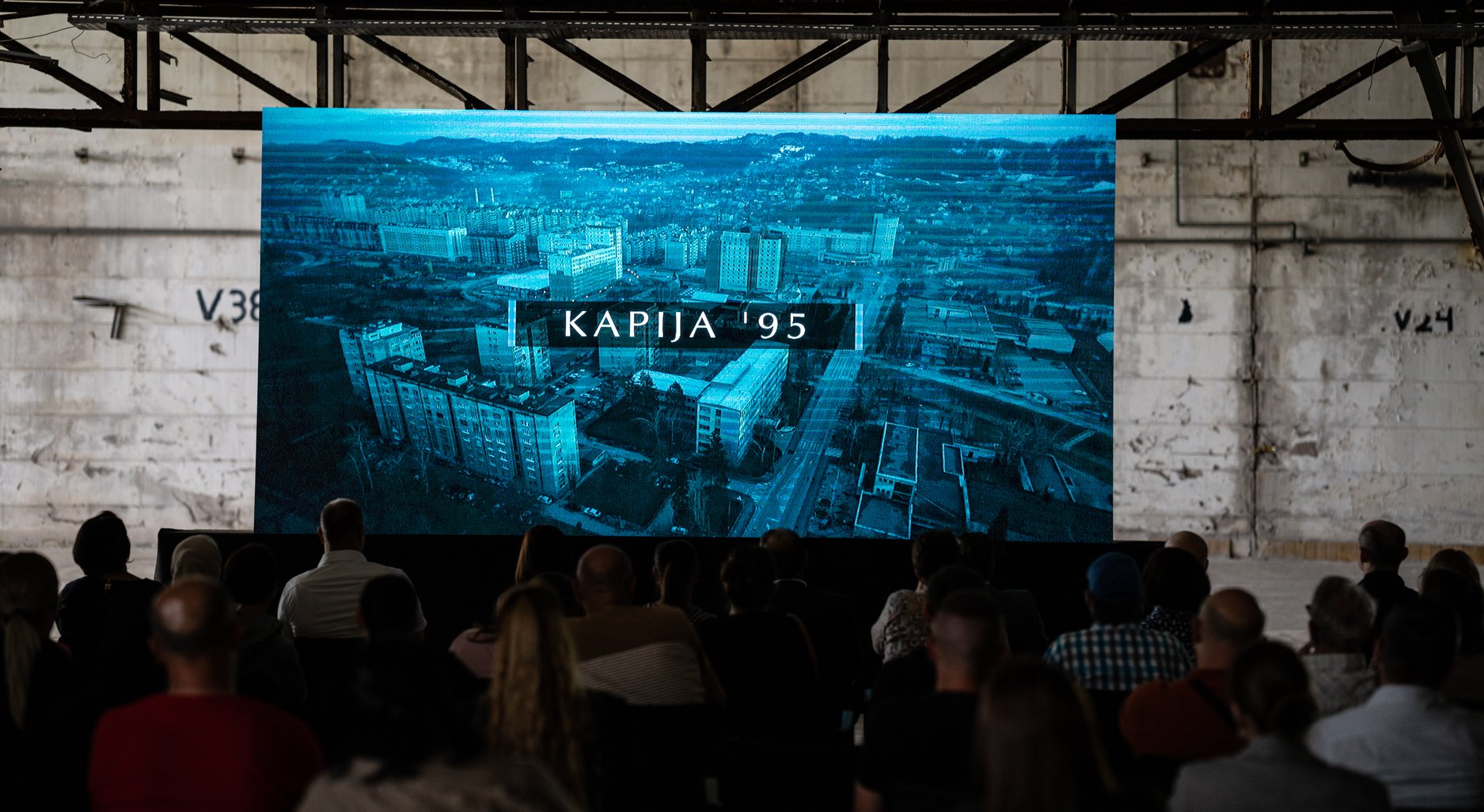
On the 27th anniversary of the crimes against Tuzla’s youth, the Srebrenica Memorial Center premiered the film „Kapija ’95“, produced by the Post-Conflict Research Center, the Srebrenica Memorial Center, and the British production company Pinch Media.
Ševket Hafizović, President of the Board of Directors of the Srebrenica Memorial Center, believes that the crime against Tuzla’s youth is one of the most horrific crimes committed in Bosnia and Herzegovina, which is why it is our obligation to be constantly reminded of it.
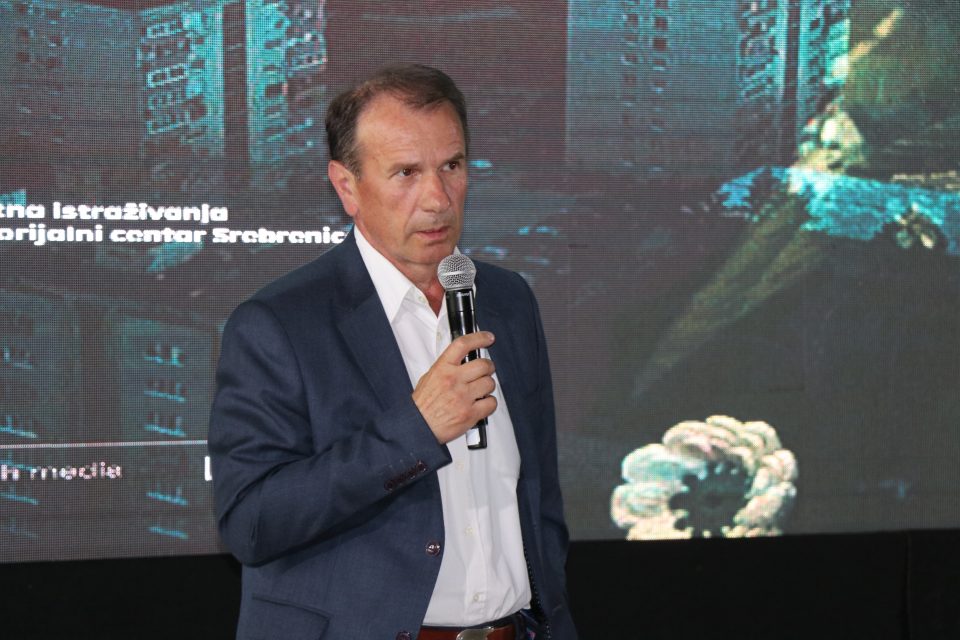
„Lives of these mothers have become a memory. It’s only us who think that these mothers are alive. This was an attempt to kill a life. We remember well what they did to us and it is our obligation to remind everybody of that,“ said Hafizović.
The horrific crime was committed on May 25, 1995 at Kapija, a meeting place for Tuzla’s youth, on the promenade in the city center. On that occasion, 71 young people were killed, and about 140 were seriously and lightly wounded.
„The crime at Kapija did not only happen to Tuzla. It is also our experience. We here [at the Memorial Center] want to document every crime, and it is in places like this one that words change their meaning,“ said Emir Suljagić, director of the Srebrenica Memorial Center and executive producer of the film „Kapija ’95.“
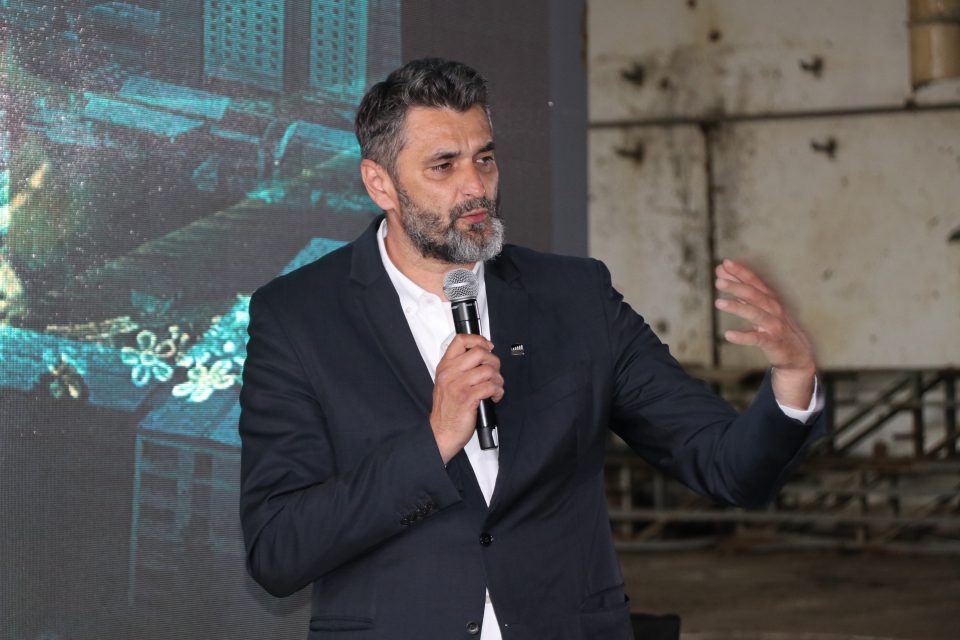
Dino Kalesić experienced the greatest fear as a parent – a grenade fired from the position of the Army of the Republika Srpska on Ozren mountain killed his three-year-old son Sandro. He is the youngest victim of this massacre.
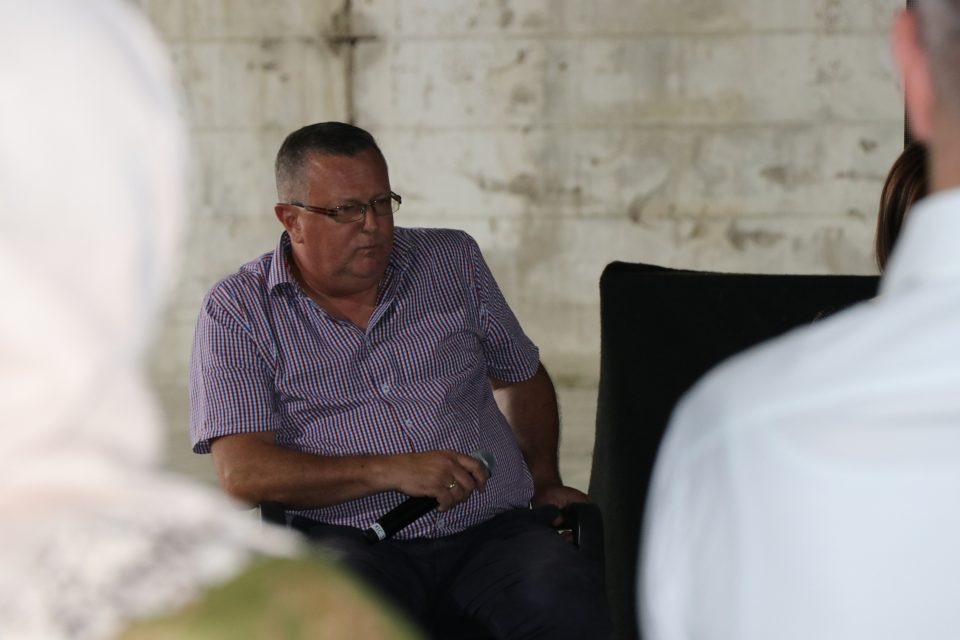
„Facts are our path towards the truth. Our path is the story of Kapija, Srebrenica, white armbands… We must not allow new generations to question what happened,“ said Kalesić. He added that the path to reconciliation and the future is in textbooks that will be the voice of truth in an impartial way.
Mirko Pincelli, cinematographer and director of the film, pointed out that the importance of documenting such crimes is of enormous value for the families of the victims: „We here know what happened. But this is Tuzla’s story. To help these families live in dignity, we have to tell difficult stories.“
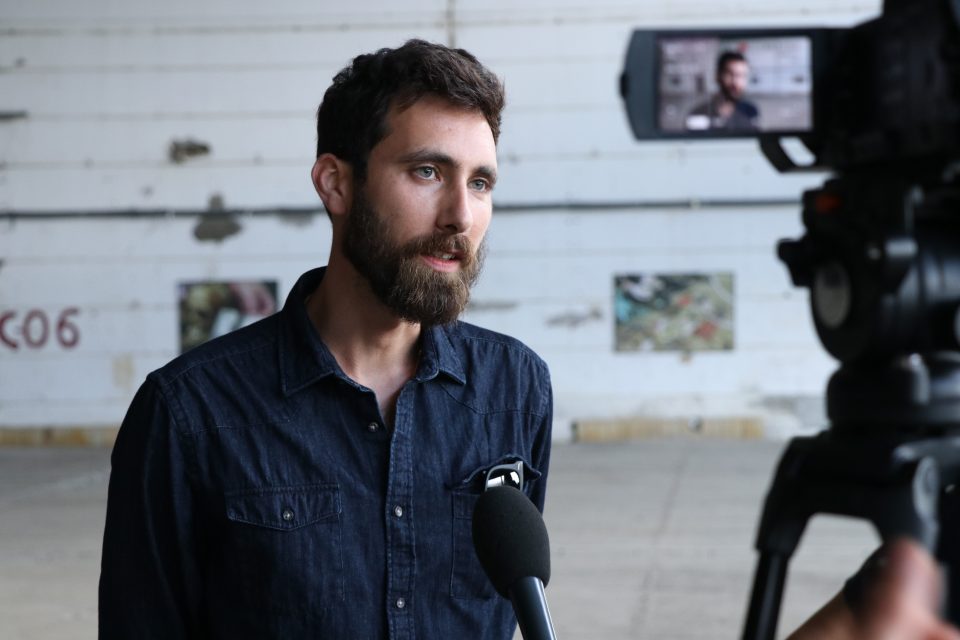
Nataša Perić, chairwoman of the Tuzla City Council, said that it is important to use documentary content, such as this film, to remind others of this crime, because only in this way will we preserve the truth about what was done. She added that no reason can dispute this crime.
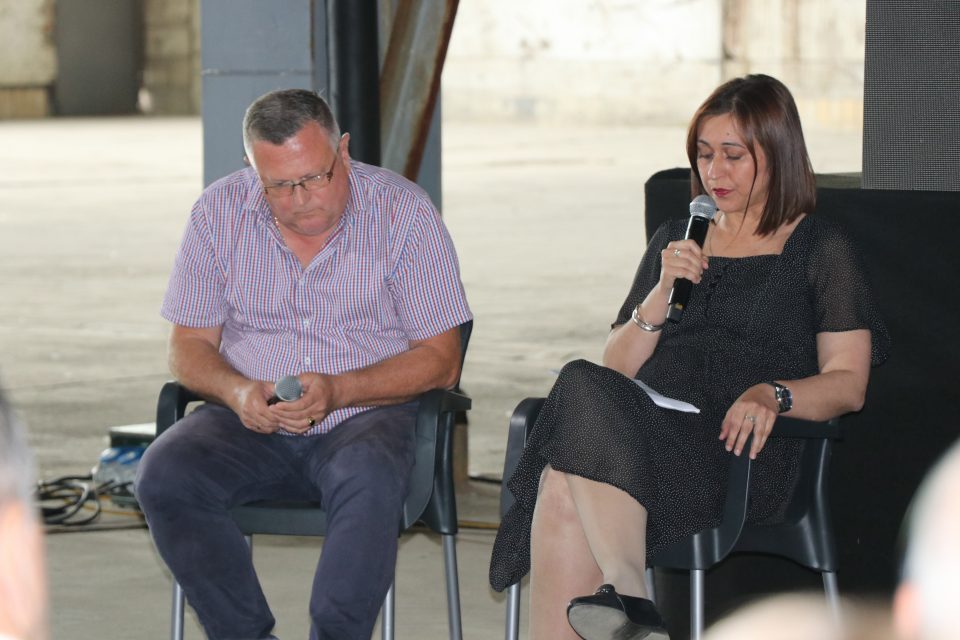
„May is the cruelest month for Tuzla,“ Perić pointed out.
Velma Šarić, president and founder of the Post-Conflict Research Center, said that the shooting of this film was a great responsibility because there was a big gap in the world of film when it comes to this crime.
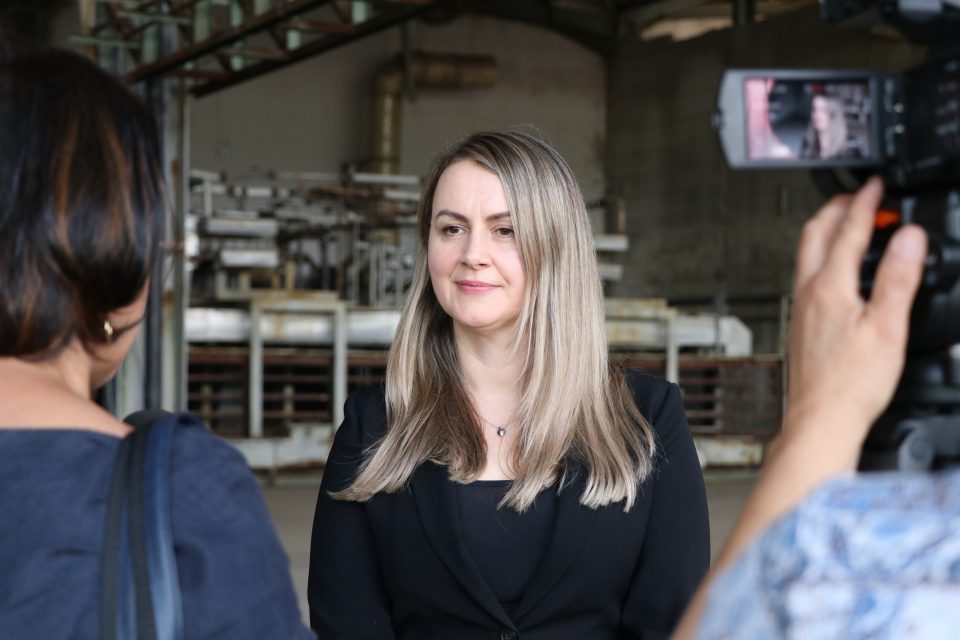
„To mark the 27th anniversary of the massacre against Tuzla’s youth is just one step in a broader strategy to commemorate crimes committed in Bosnia and Herzegovina,“ said Šarić, who has produced several documentaries on crimes committed in our country.
Although the 27th anniversary of the crimes against Tuzla’s youth is being held on May 25, 2022, the only person held accountable for this crime is Novak Đukić, who was sentenced to 20 years in prison. However, he was released from serving his sentence due to the application of the provisions of the criminal law from the former Yugoslavia. He went to Serbia, which did not take over the verdict and its execution due to the explanation that Đukić is in poor health.






